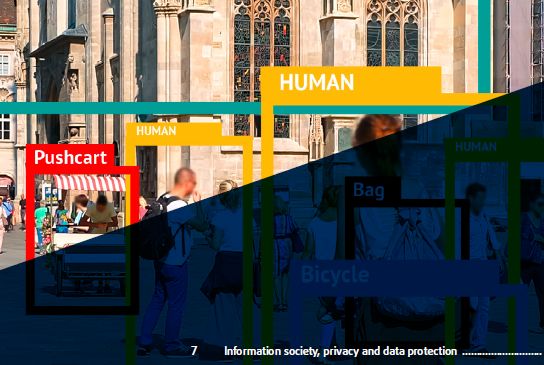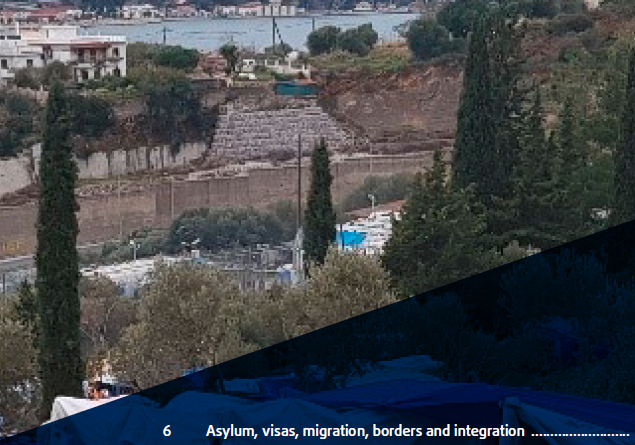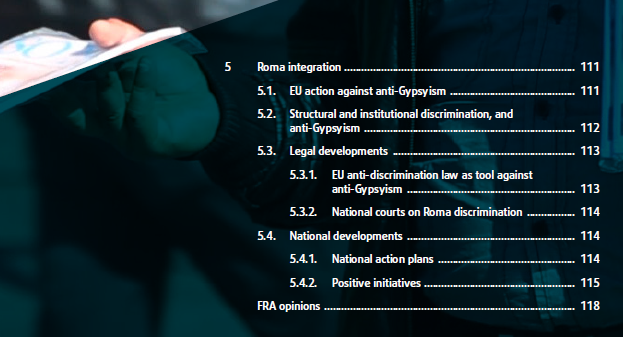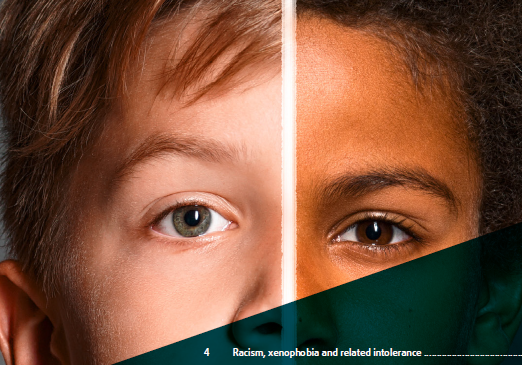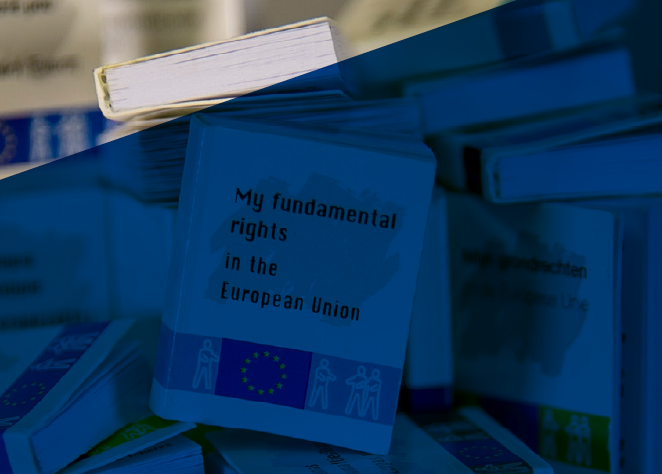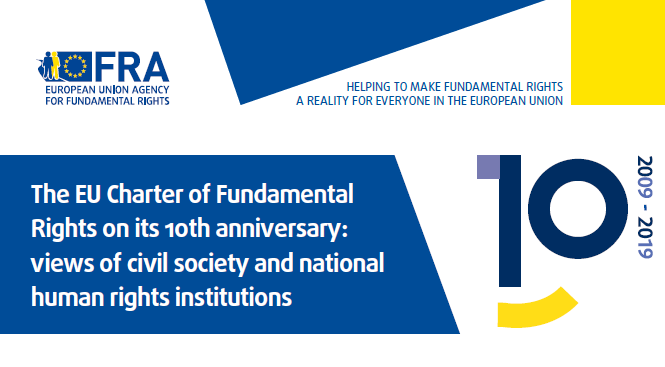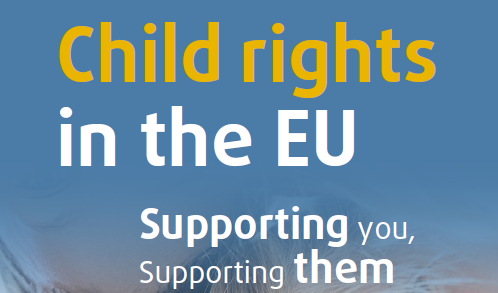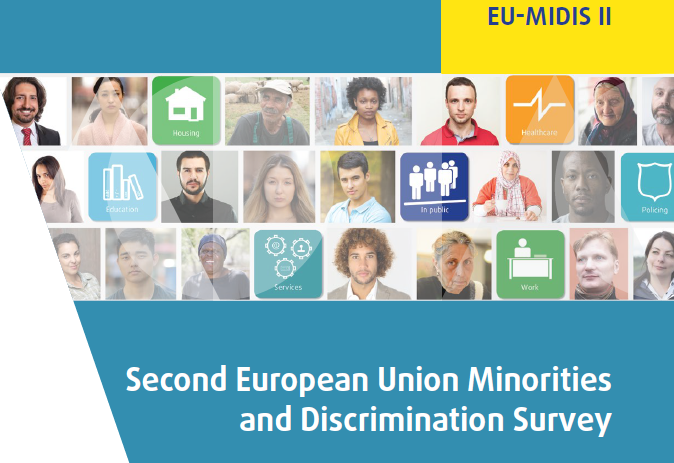For a quick search in the Knowledge database below, please use the search box. Also, note that using one or more of the dropdown filters will optimise your search.
Watch this video to find out more about our Knowledge Database and the publications we have collected here for you: video
Knowledge Database
-
Information society, privacy and data protection
FRA | Published in 2019
In 2018, news of large-scale abuses of personal data sparked concern and raised awareness of the need for strong privacy and data protection safeguards. This underlined the importance of legislators’ efforts in this area – such as the General Data Protection Regulation (GDPR), which became applicable in May – as well as the key role of whistleblowers and civil society. Meanwhile, the Council of Europe opened for signature the Amending Protocol for modernised Convention 108, and the global expansion of Convention 108 continued, reaching a total of 53 States Parties by the end of 2018. Both texts provide individuals with a reinforced legal framework to protect their rights to privacy and protection of personal data. Such legal frameworks are especially vital when fast-evolving technologies bring both economic opportunities and legal challenges. cross the EU, Member States entered an artificial intelligence race to ensure that industry and labour markets are well placed for tomorrow’s competitiveness – sometimes leaving fundamental rights on the margin of the debates. Finally, and as in previous years, data protection in the context of law enforcement also remained high on the agenda, with the European Commission proposing new rules for the cross-border acquisition of e-evidence. There were, however, no EU-level developments on data retention: no EU initiatives to comply with the relevant 2014 and 2016 CJEU judgments were proposed.
Keywords: cybercrime, data protection, victims' rights -
Asylum, visas, migration, borders and integration
FRA | Published in 2019
As global displacement numbers remained high, arrivals to the European Union (EU) continued to drop. Attempting to cross the Mediterranean Sea remained deadly, with an estimate of 2,299 fatalities in 2018. Allegations of refoulement and of police mistreating migrants and refugees persisted. In June, European leaders called for a comprehensive approach to migration, with a strong focus on stemming irregular migration, including unauthorised movements within the EU. Diverse large-scale IT systems – most of which involve processing biometric data – were both introduced and further developed. Meanwhile, the integration of refugees who arrived in 2015-2016 made progress despite diverse hurdles.
Keywords: cross-border crime, migration, victimisation, violence -
Roma integration
FRA | Published in 2019
Roma continue to face discrimination because of their ethnicity in access to education, employment, healthcare and housing. Reports of discrimination and hate crime continued in 2018, confirming that anti-Gypsyism remains an important barrier to Roma inclusion. There has been little change in the social and economic situation of Roma across the EU, FRA data show. This undermines EU and national efforts to reach the Sustainable Development Goals (SDGs), in particular Goal 10 in regard to reducing inequality within countries, and more specifically its Target 10.3 to ensure equal opportunity and reduce inequalities of outcome. The 2018 edition of Eurostat’s monitoring report on progress towards the SDGs in the EU contains no reference to Roma inclusion outcomes or to the relevant data that FRA produced, despite the high relevance of monitoring a number of goals specifically for Roma. Such monitoring would have explicit policy relevance, given the existence, since 2011, of an EU Framework for National Roma Integration Strategies and the related Council Recommendation of 2013.
Keywords: cross-border crime, family, hate crime, migration, poverty -
Racism, xenophobia and related intolerance
FRA | Published in 2019
Eighteen years after the adoption of the Racial Equality Directive and 10 years after the adoption of the Framework Decision on Racism and Xenophobia, people with minority backgrounds and migrants continue to face widespread harassment, structural discrimination, entrenched prejudice and discriminatory ethnic profiling across the EU, as the findings of FRA’s 2018 surveys and reports of human rights bodies show. Several Member States have still not correctly and fully incorporated the Framework Decision on Racism and Xenophobia into national law. In 2018, only 15 Member States had in place action plans and strategies aimed at combating racism and ethnic discrimination.
Keywords: hate crime, migration, victimisation, violence -
EU Charter of Fundamental Rights and its use by Member States
FRA | Published in 2019
In 2018, the Charter of Fundamental Rights of the European Union was in force as the EU’s legally binding bill of rights for the ninth year. It complements national constitutions and international human rights instruments, in particular the European Convention on Human Rights (ECHR). As in previous years, the Charter’s role and usage at national level remained ambivalent. National courts did use the Charter. Although many references to the Charter were superficial, various court decisions show that the Charter can add value and make a difference. Impact assessments and legislative scrutiny procedures in a number of Member States also used the Charter. This was, however, far from systematic and appeared to be the exception rather than the rule. Moreover, governmental policies aimed at promoting application of the Charter appeared to remain very rare exceptions, even though Article 51 of the Charter obliges states to proactively “promote” the application of its provisions. The Charter’s tenth anniversary in 2019 provides an opportunity to inject more political momentum into unfolding the Charter’s potential.
Keywords: humanitarian, victims' rights -
The EU Charter of Fundamental Rights on its 10th anniversary: views of civil society and national human rights institutions
FRA | Published in 2019
This paper focuses on the use of the Charter by civil society organisations (CSOs) and national human rights institutions (NHRIs), which are key actors in the Charter’s ‘enforcement chain’. It is based on a consultation carried out by FRA amongst civil society organisations active in the field of fundamental rights and on preliminary findings from its research on NHRIs.
Keywords: humanitarian, victims' rights -
Child rights in the EU: Supporting you, Supporting them
FRA | Published in 2019
Child rights come first. Measures to ensure child protection and participation apply to ALL children in the EU. This brochure raises awareness about FRA’s work on child rights in Europe. Signposting relevant reports and practical tools, it is a resource and reference point for your own work upholding child rights.
Keywords: children, family, migration, victimisation, victims' rights -
Experiences and perceptions of antisemitism: Second survey on discrimination and hate crime against Jews in the EU
FRA | Published in 2018
The findings presented in this report thereby provide policy makers with evidence they can draw on to refine existing or devise new courses of action to prevent and counter antisemitism. The findings are also relevant to civil society organisations concerned with ensuring the security of Jewish communities or with preventing and fighting antisemitism, as well as those working towards supporting fair and just societies.
Keywords: hate crime, violence -
Second European Union Minorities and Discrimination Survey
FRA | Published in 2017
The population of the European Union (EU) is already highly diverse and is becoming more so. Alongside established minorities – such as the Roma and national minorities – immigration to the EU has played a significant role in shaping ethnic and cultural diversity in the Union. This has triggered challenges to social cohesion and respect for human rights, prompting the gradual development of policy and legal measures in many Member States and at EU level. However, effectively assessing the impact of these measures on the ground proved difficult due to the absence of relevant and comparable official data. To make up for this gap, in 2008, the agency conducted the first-ever major EU-wide survey on minorities’ and migrants’ experiences with discrimination and criminal victimisation. This provided, for the first time, robust empirical evidence in the form of comparable statistical data across EU Member States – an invaluable basis for solid assessments of the impact of legal and policy measures on the ground and for EU and Member State efforts to improve their legal and policy responses. The second wave of this survey, conducted in 2015 and 2016, provides evidence on how the situation has developed over the past years – covering additional areas such as citizenship, residence, participation, trust and tolerance.
Keywords: discrimination, hate crime, migration, violence -
Strengthening mental health care systems for Syrian refugees in Europe and the Middle East: integrating scalable psychological interventions in eight countries
Marit Sijbrandij et al. | Published in 2017
The crisis in Syria has resulted in vast numbers of refugees seeking asylum in Syria’s neighbouring countries as well as in Europe. Refugees are at considerable risk of developing common mental disorders, including depression, anxiety, and posttraumatic stress disorder (PTSD). Most refugees do not have access to mental health services for these problems because of multiple barriers in national and refugee specific health systems, including limited availability of mental health professionals. To counter some of challenges arising from limited mental health system capacity the World Health Organization (WHO) has developed a range of scalable psychological interventions aimed at reducing psychological distress and improving functioning in people living in communities affected by adversity. These interventions, including Problem Management Plus (PM+) and its variants, are intended to be delivered through individual or group face-to-face or smartphone formats by lay, non-professional people who have not received specialized mental health training.
Keywords: capacity building, mental health, migration, psychological first aid, support, trauma
